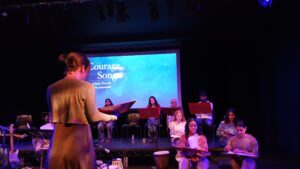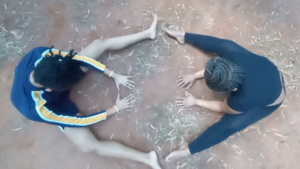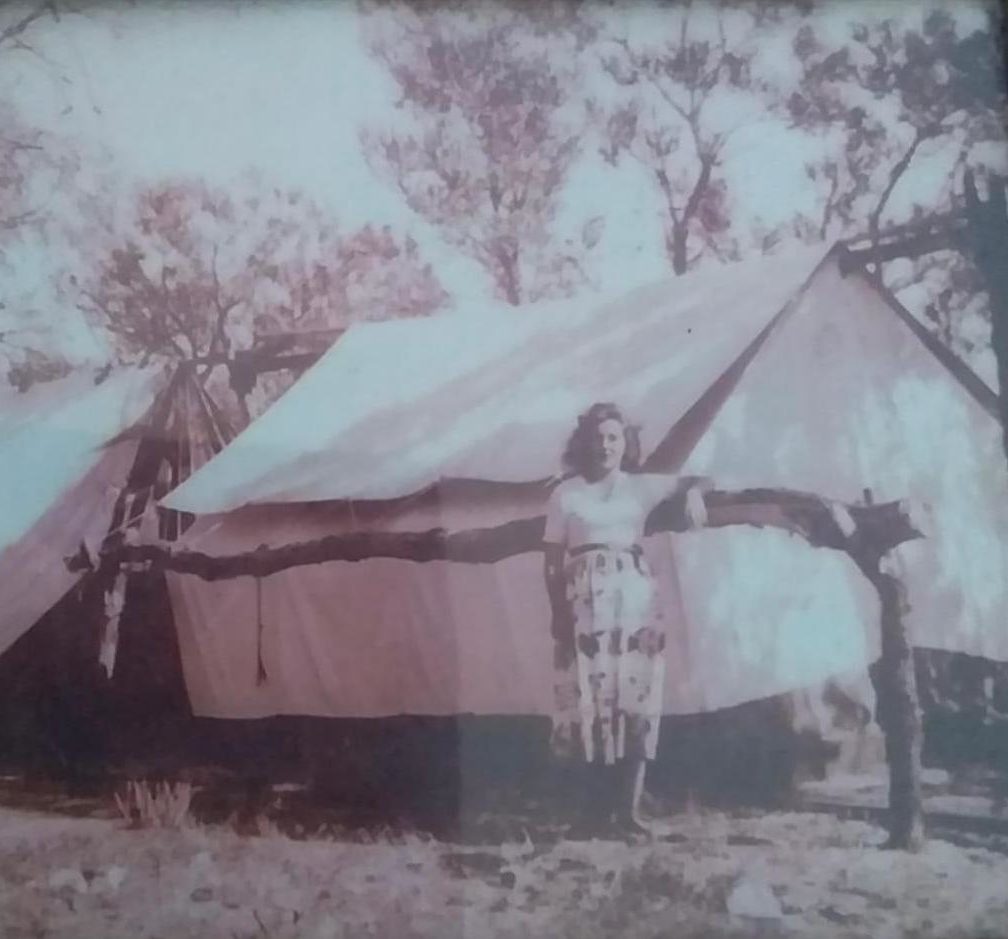
Migration and my songs of courage
For the past two years I have been slowly developing a new play that is inspired by the female-led migration story and told through a memoir of songs.
Courage Songs has plagued all aspects of my daily life – from research, teaching, family and home. I initially wrote about it here in a blog post that followed the death of my grandfather and the absorbing discussions had thereafter with his sister, my grandaunt Elizabeth. I have been drawn to Elizabeth, not only as the final sibling left alive in a family of migrants, but as the sharply optimistic, intelligent and wilful woman she is. Elizabeth has been endeared as the playful, youngest sibling in early twentieth century Dublin, to her mid-century migration from Ireland to Australia and presently, into her later years. She is far superior to being thought of as my muse.

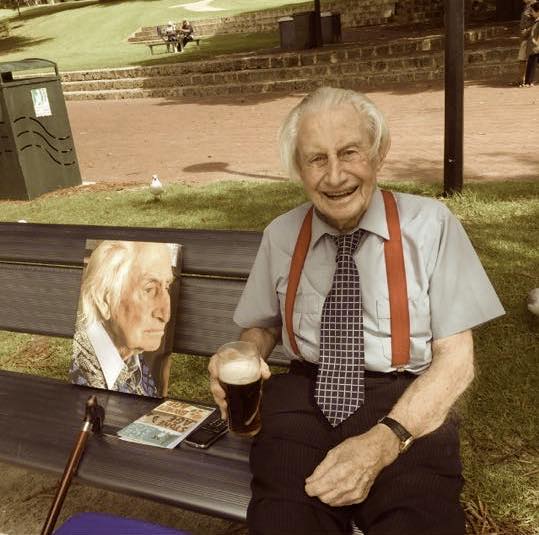
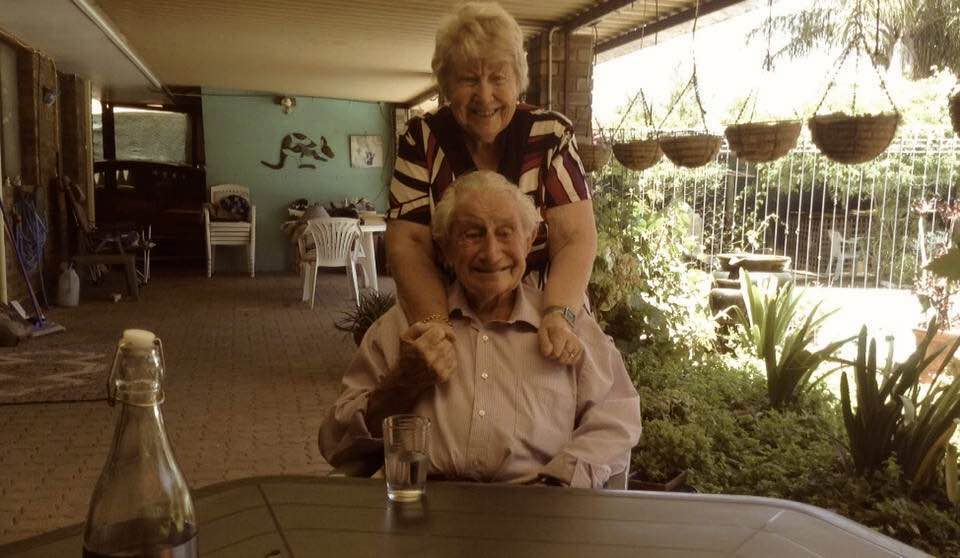
In the 20 years since leaving the sleepy seaside town of Busselton on the southern coast of Western Australia, I have lived in six cities and three continents, learnt several languages and spoken with thousands of people. My experiences rest on a privilege unknown to the Irish family who stayed in Dublin. Yet, for a large part of this time, I have had very little in my pockets. I ate porridge for every meal with my friend Zoë in Berlin while learning German and trying to find work; in London, I travelled two-hours by bus to work each day because of being unable to afford the 45-minute train. The times that I have relied on my parents to bail me out of challenging circumstances were a sore reminder of what sets me apart from the majority of migrants whose movement is defined by the will of others. Migration and migrancy are both entrenched within my privileges as a settler Australian whilst continuing to shape the porousness and frailty of my life. I have the opportunity to choose, yet I still choose movement, introductions, risk, confusion, overwhelm, deep connections, catharsis and surprise.
Creativity is embedded within my experiences of migration. When making and experiencing music, theatre and performance, I enter deeper emotional states through my ongoing palpable reflections post-migration. Songs are particularly violent in their ability to enter public and private life, catching one off-guard, rushing emotion up the chest, breaking the voice and blurring the eyes. There have been songs that remind me of periods of my life in ways that I never thought could be remembered so viscerally: Anohni’s Hope there’s someone; Soap and Skin’s Vater; Massive Attack’s Live with me; or my own songs written for Zoë’s Polish band Blue and the Painted Valley. Songs become chapters for migration. They allow my body to remind me what memories of migration felt like. They stimulate catharsis and time travel.

My new project Our songs of courage, 19 April to 7 June 2023 at the University of Birmingham, explores the experience of selecting and replaying songs from our past as stimuli for sharing how such catharsis has wielded courage. I will facilitate each session as located in my experiences of migration, however privileged. By contextualising my connections to migration (above) in the preface of this new project, I hope to open up discussion for the pluralities and complexities around the vastly diverse and changing experiences of migrants.
Since women’s stories of migration have not been at the forefront of migration discourse, their/our stories are platformed in this project. I look to explore how these migration stories differ from the centralised male perspective, asking the questions:
- How does standing in the background of the decisions around the very move to migrate impact one’s entire future migration and post-migration experience?
- How does building a career that is questioned as legitimate, across gender, religious and racial lines, shape migration experiences?
- How does supporting the emotional balance of partners and families post-migration impact one’s lived perspectives of migration?
Stories of non-binary migrants are even more silenced and thus articulate unique questions. In shaping Our songs of courage as a ‘women’s story project’, I have chosen to indicate a confidential space for the majority Muslim women population in the area that the project takes place. There is an uncomfortable tension in this decision as it seems to reject one disparate community through supporting another (except for a small footnote addendum). I would be grateful to hear of alternative ways to navigate this tension from non-binary researchers and practitioners as well as experienced theatre practitioners in the region working with Muslim communities, including Creative English and Soul City Arts.
Here is an example of one of my songs that I will share with the group in the project Our songs of courage:
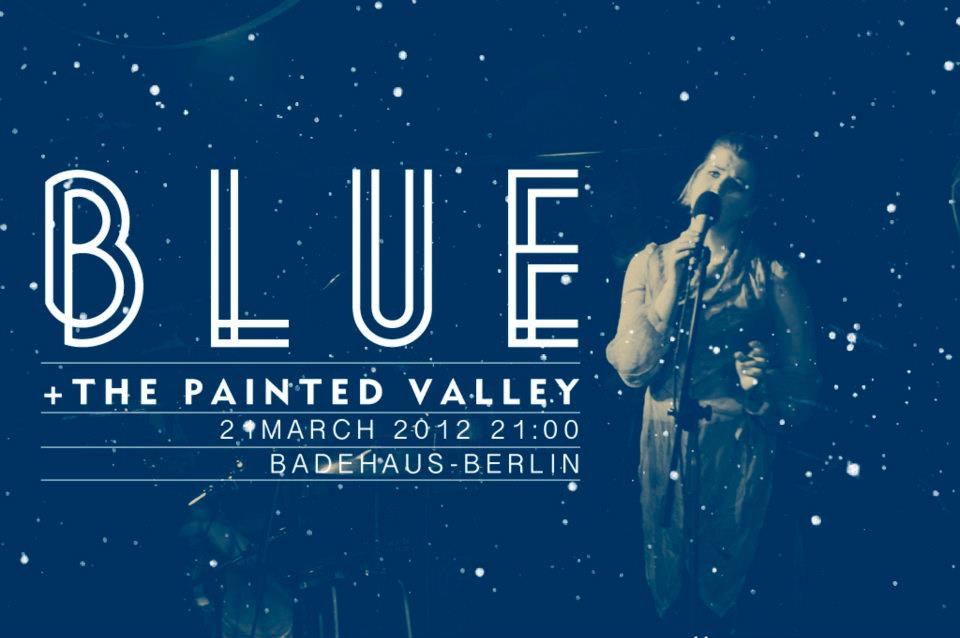
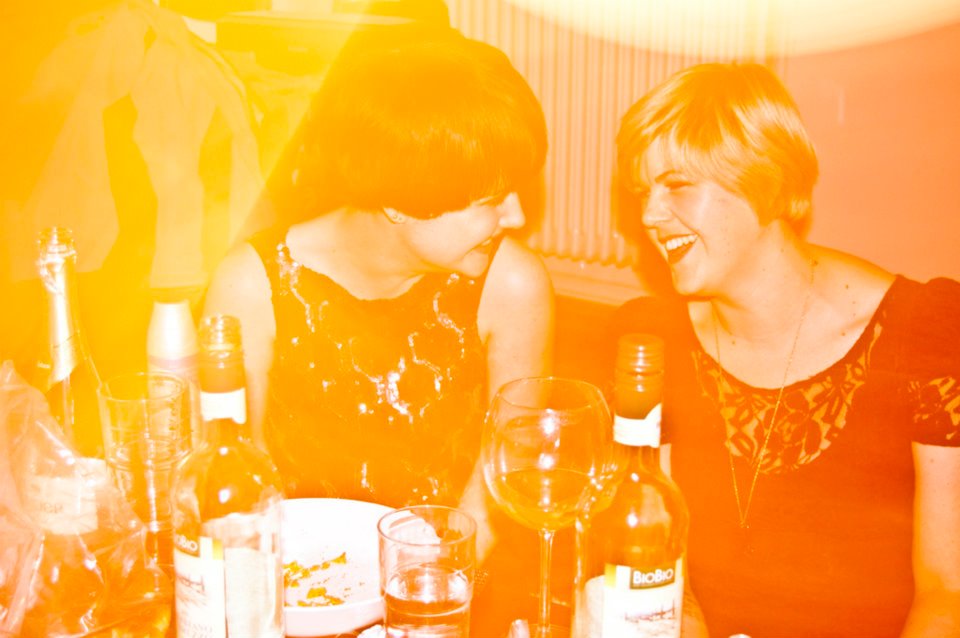
My Little Bumpkin (extract), Blue and The Painted Valley
My little bumpkin do we know you
My little bumpkin do we know you
I held my fingers crossed
Not to see you fall
We watched you driving far
Falling, into your own disgrace
Crying
Crying
For you
This is a song that I listened to over and over with Zoë.
She sang it as I wrote it. It was 2010.
In this process of writing and listening, I was thinking about the experience of migration from the rural areas that I grew up within to the urban areas that I had moved to. The song is written from my mum’s point of view whilst watching me disappear.
The idea of ‘do we know you’ was a question of change and upheaval for both me, wanting growth, and my mum losing the youngest child from her home. I lost a sense of myself, too, at this time, burying my head in parties and festivals.
I believe that this song experience gave me courage to make big changes in how I nourished the relationship with my parents in my next major move across the world.
In the next decade, over oceans and borders, my parents and I sustained a new kind of bond, navigated through the knowledge generated from the catharsis of this song.
To learn more about Our songs of courage, click here.
